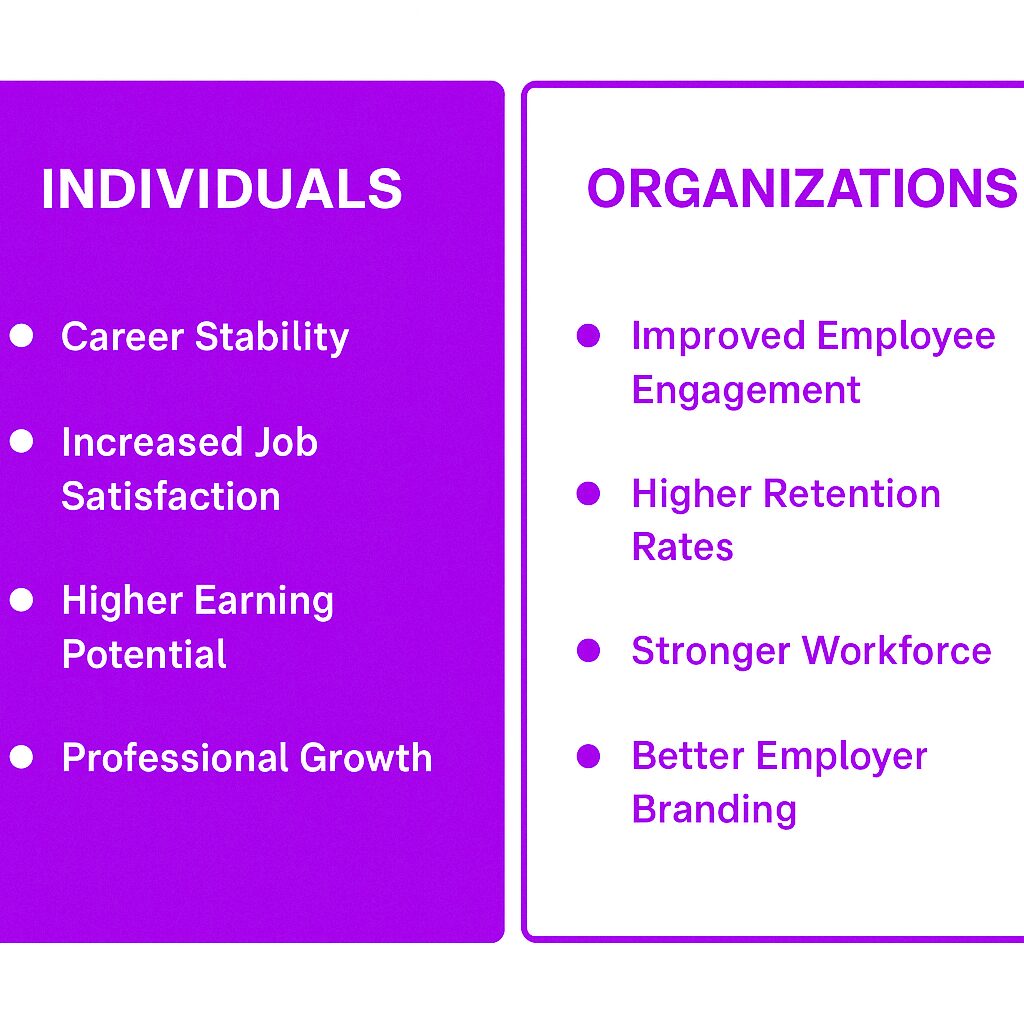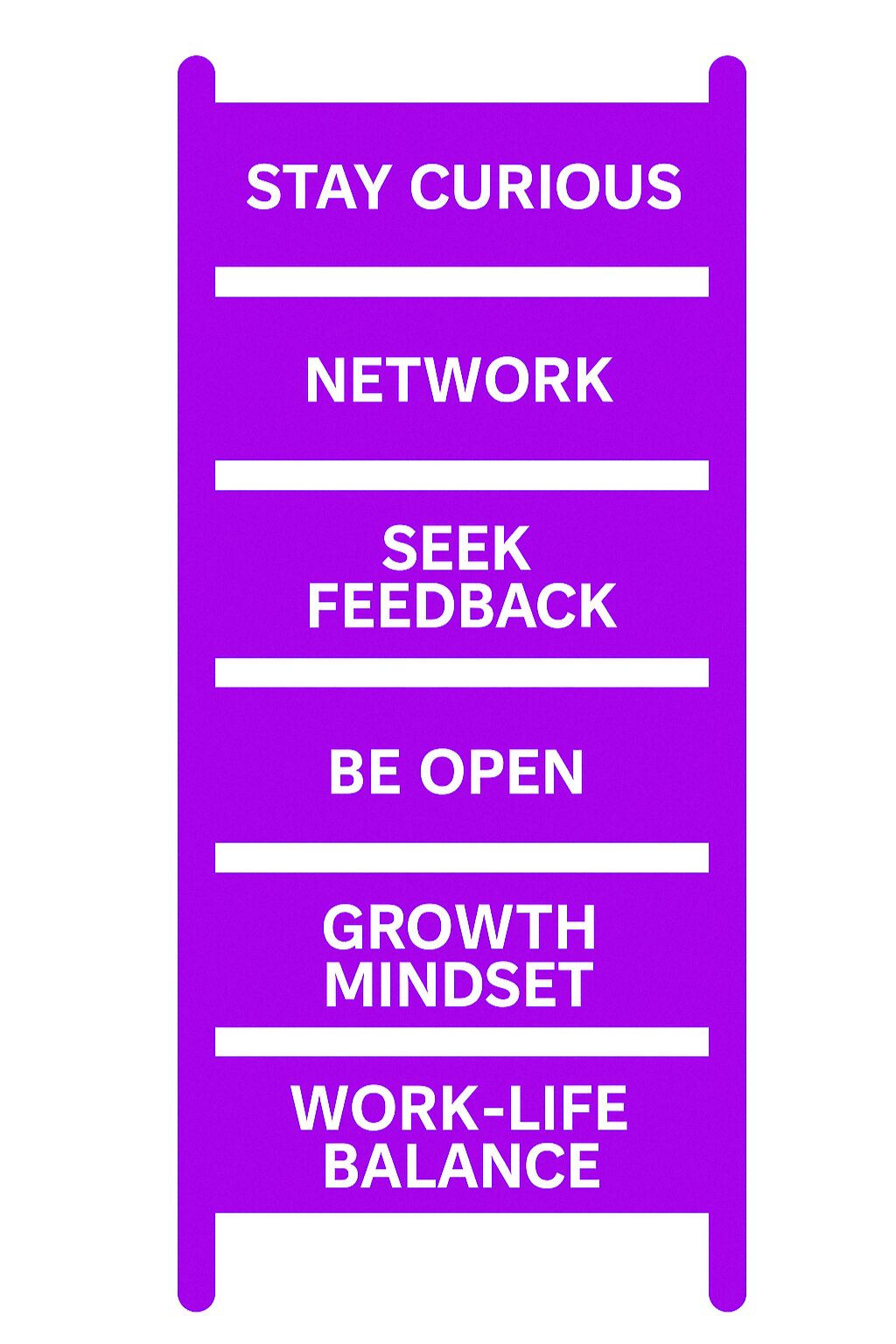Career development is the continuous process of managing professional growth and progress. It involves acquiring skills, gaining experience, setting goals, and making decisions that shape a career over time, making career development important for both personal and organizational success. It applies to individuals seeking advancement and organizations that support employee growth.
Definition and Importance of Career Development
Career development refers to the process of improving skills, abilities, and knowledge to enhance one’s career prospects and achieve professional growth. It is a crucial aspect of an individual’s career journey, enabling them to stay competitive in the job market and adapt to changing industry trends. Career development is essential for individuals and organizations alike, as it fosters a culture of continuous learning, innovation, and improvement.
Understanding the process of improving skills, abilities, and knowledge
Career development involves a range of activities, including training programs, mentorship, coaching, and self-directed learning. It requires individuals to take ownership of their career growth, identifying areas for improvement and seeking opportunities to develop new skills and knowledge. By investing in career development, individuals can enhance their job satisfaction, increase their earning potential, and achieve their long-term career goals. Whether it’s through formal education, such as degree programs, or informal learning, like attending workshops, the continuous pursuit of knowledge is key to career advancement.
Importance for individuals and organizations in staying competitive
In today’s fast-paced and rapidly changing job market, career development is more important than ever. It enables individuals to stay ahead of the curve, developing the skills and knowledge required to succeed in their chosen career path. For organizations, investing in career development is essential for attracting and retaining top talent, improving productivity, and driving business growth. By prioritizing career development, organizations can create a culture of innovation and excellence, positioning themselves for long-term success. This not only benefits the employees but also ensures that the organization remains competitive and adaptable in an ever-evolving industry landscape.
Why Career Development Matters
People spend a significant portion of their lives working. Career advancement opportunities are crucial for both individuals and organizations, leading to increased job satisfaction and reduced turnover rates. A clear path for career development improves job satisfaction, financial stability, and professional fulfillment. It allows individuals to explore opportunities, overcome obstacles, and achieve long-term career goals.
Organizations benefit from career development opportunities by fostering employee engagement, reducing turnover, and building a skilled workforce. Companies that prioritize career growth attract top talent and improve overall performance.
The Key Stages of Career Development
Self-Assessment
Career development starts with understanding personal strengths, weaknesses, interests, and values, which are essential for mapping out one’s career trajectory. Individuals evaluate their skills, work preferences, and long-term aspirations. This stage helps clarify career paths that align with personal and professional goals.
Questions to consider:
-
What skills do I excel in?
-
What kind of work environment suits me best?
-
What are my long-term career aspirations?
Career Exploration
Once individuals identify their strengths and interests, they explore different career paths. This stage involves researching industries, job roles, and growth opportunities, including those in the medical profession. Networking, informational interviews, and job shadowing provide insight into different career options.
Strategies for exploration:
-
Research industry trends and emerging job roles.
-
Connect with professionals in fields of interest.
-
Attend workshops and career fairs.
Goal Setting
Setting clear career goals provides direction. Goals should be specific, measurable, and achievable. Short-term goals focus on immediate progress, such as completing a certification, while long-term goals include career advancements like promotions or leadership roles.
Example goals:
-
Obtain a professional certification within six months.
-
Apply for a managerial position within two years.
-
Develop public speaking skills by attending workshops.
Career Development Plan
Career development plans involve mapping out the steps needed to achieve career goals. It includes skill-building, gaining relevant experience, and identifying potential challenges. Individuals create a structured approach to career progression.
Elements of career planning:
-
Identifying required skills and qualifications.
-
Finding mentors and role models.
-
Seeking learning and development opportunities.
Career Implementation
In this stage, individuals actively work toward their career goals. Understanding and developing worker’s skills is crucial for career advancement and individual fulfillment. They apply for jobs, take on new responsibilities, and continue learning. Performance evaluations, feedback, and continuous adjustments help individuals stay on track.
Ways to implement career plans:
-
Apply for stretch assignments and leadership roles.
-
Seek mentorship and coaching.
-
Continuously update skills through professional development.
Achieving Your Dream Job
Achieving your dream job requires careful planning, dedication, and a willingness to continuously learn and grow. It involves setting specific, measurable, and achievable career goals, and developing a career development plan to achieve them. This structured approach helps you stay focused and motivated, guiding you through your career development journey.
Setting specific, measurable, and achievable career goals
To achieve your dream job, it’s essential to set clear and specific career goals. This involves identifying your strengths, weaknesses, and areas for improvement, and developing a plan to address any gaps in your skills or knowledge. Your career goals should be measurable, achievable, and aligned with your values and aspirations. By setting specific goals, you can create a roadmap for your career development journey, ensuring you stay focused and motivated on your path to success. For instance, if you aspire to reach more senior positions, you might set goals to enhance your communication skills, gain relevant experience, or complete specific training programs. This strategic approach not only helps in achieving your dream job but also ensures continuous professional growth and job satisfaction.
Benefits of Career Development
Benefits for Individuals: Career Growth
-
Career Stability: Continuous growth ensures adaptability in a changing job market.
-
Increased Job Satisfaction: Pursuing meaningful work leads to greater fulfillment.
-
Higher Earning Potential: Skills and experience contribute to better job opportunities and higher salaries.
-
Professional Growth: Continuous learning opens doors to new career paths.
Benefits for Organizations: Career Advancement Opportunities
-
Improved Employee Engagement: Employees who see growth opportunities stay motivated.
-
Higher Retention Rates: Companies that invest in employee growth reduce turnover.
-
Stronger Workforce: Upskilling employees improves overall organizational performance.
-
Better Employer Branding: Organizations with career development programs attract top talent.
Challenges in Career Development
Lack of Resources
Not all companies provide structured career development programs. Employees may need to seek learning opportunities independently.
Resistance to Change
Some professionals hesitate to leave their comfort zones. Career development requires adaptability and a willingness to embrace new challenges.
Balancing Work and Work Life Balance
Finding time for professional growth while managing work responsibilities and maintaining a healthy work-life balance can be difficult. Prioritizing learning and setting clear goals can help maintain balance.
Practical Tips for Career Development
-
Stay Curious: Learn continuously through courses, books, and industry trends.
-
Network Effectively: Build relationships with mentors, peers, and industry leaders.
-
Seek Feedback: Constructive criticism helps identify areas for improvement.
-
Be Open to Opportunities: Career growth sometimes requires taking unexpected paths.
-
Develop a Growth Mindset: Embrace challenges and view setbacks as learning experiences.
Related Sub-Concepts
Talent Development
Focuses on training and mentorship to help employees grow within an organization.
Leadership Development
Prepares individuals for management and executive roles through structured training and experience.
Succession Planning
Ensures that organizations have qualified employees ready to step into key roles when needed.
Real-World Examples of Career Development Programs
Google’s “G2G” (Googler-to-Googler) Program
Encourages employees to share knowledge and teach skills internally, promoting continuous learning.
Amazon’s “Career Choice” Program
Provides tuition reimbursement to help employees gain skills for career advancement, even outside of Amazon.
Microsoft’s “LEAP” Program
Focuses on leadership development and professional growth for technical professionals.
Hilton’s “Elevate” Program
Prepares employees for senior leadership roles by offering mentorship and career training.
Final Thoughts
Career development is a lifelong process. It requires self-assessment, exploration, goal-setting, and continuous learning. Whether pursued independently or through an employer’s program, investing in career growth leads to greater opportunities, job satisfaction, and long-term success.






